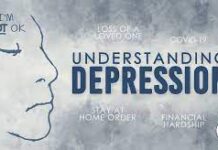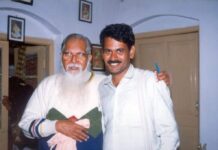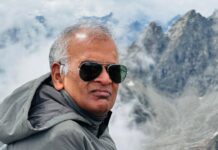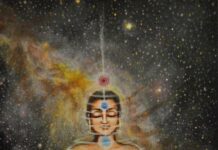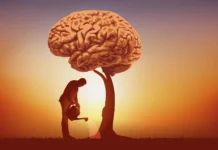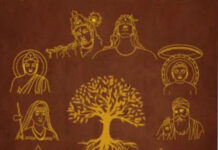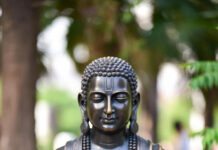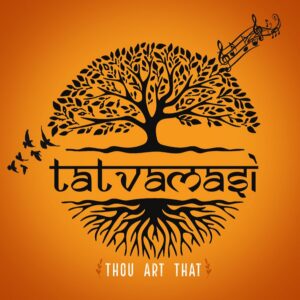
Once, as I strolled with a hunter, he pointed out a wild dog and remarked, “Observe the wound. It’s fatal.”
In reality, it was just a minor scratch. I probed further. He explained, “Indeed, it’s a trivial wound for most creatures, but this one is a predator. Bloodlust flows in its veins. As the wound throbs, it will lick it, succumbing to the allure of blood. It won’t halt. The wound will fester, leading to its demise.”
In our current era, whether browsing social media or engaging in casual chats, I’m struck by the pervasive negativity enveloping our society. We’re familiar with the ubiquitous ‘netizen’, perpetually shrouded in negativity, seething with anger or cynicism. Swift to lash out and belittle anyone, regardless of their accomplishments. This same mindset echoes in encounters with the average person on public transport.
Negativity is readily embraced, now a prized commodity in commerce and politics. Be it political propaganda, commercial endorsements, or intellectual debates, negativity reigns supreme today. The system thrives on negativity, luring each individual into its grasp. Resisting this pull proves immensely challenging.
Negativity dons various guises—political awareness, idealism, political correctness, moral righteousness, religious sensitivity, and more. Justifying our negativity is effortless, aided by a plethora of tools provided by the media. We understand the detrimental effects of negativity: breeding pessimism, depression, insomnia, and eventual physical ailments. We grasp that negativity is our undoing, yet we struggle to break free.
This struggle stems from a profound emptiness within us. Boredom plagues us. Essential questions remain unanswered. Embracing negativity fills this void effortlessly, as it saturates our surroundings. Negative emotions like anger, annoyance, and disdain are potent; they require no nurturing. If you were to question why people are engrossed in social media or fruitless debates, the unanimous response would be boredom.
In the past, survival itself was a monumental task. Our predecessors toiled all day, with leisure as a rare luxury. Presently, many of us enjoy comfortable jobs and ample free time. However, utilizing this time productively demands mental discipline. Appreciating art and literature isn’t innate; they are cultural pursuits that necessitate learning. Even embarking on an adventure or leisure trip requires knowledge and training beyond our routine lives.
Boredom and anxiety plague our era. Boredom arises from a lack of purpose, while anxiety stems from ignorance about life. I’m not referring to the Kopmeyor-style ‘goal’. Setting material goals may temporarily order our lives, yet we risk falling into the ‘emptiness of achievement’. Suddenly, we may perceive everything as meaningless. What I advocate is understanding one’s purpose in this vast universe. Aligning ourselves perfectly within the grand scheme is the sole path to overcoming existential dread, the angst.
I experienced all of this in my twenties when my close friend and later my parents committed suicide. I emerged from that state through Vedanta, and I can confidently say that I led a rich and meaningful life. Literature became my swadharma, and for the next forty years, I dedicated myself to it. Writing daily, I fully embraced the life of a writer. I believe I have crafted world literary masterpieces. With extensive reading, global travels, and establishing cultural organizations, I never felt a sense of emptiness or experienced depression. I always maintain an optimistic and positive outlook. My life is an open book to my readers, who faithfully follow me through my blog. The qualifications I have to make these statements stem from my life and accomplishments.
Christ’s compassion addresses our guilt, while Muhammad’s vision speaks to our loneliness. Only Vedanta can tackle our fundamental questions and inner conflicts. Vedanta is a philosophy suited for individuals who can withstand the weight of their own inquiries and have faith in their intellect.
Vedanta refrains from offering us direct answers. Instead, it provides a comprehensive vision, illustrated through the allegory of the mountain in lightning. Essentially, Vedanta is beyond theology or philosophy; it actually eludes logic. Engaging in argument with it only reveals its complex logical system, leading us astray in its maze. Vedanta is poetry; it resonates and is comprehended through feeling. It unfolds instantaneously, like a poem transforming into an experience for us. Each student of Vedanta encounters their own “moment of advaita” – a moment of non-duality.
Every concept in Vedanta is inherently paradoxical; as Nataraja Guru suggested, they are dialectical. Vedanta’s interpretation leads to the concept of ‘meaning—unknowable’ or ‘personal meaning—cosmic meaninglessness’. According to Vedanta, our existence is an ‘existence of non-existence’. Drawing from personal experience, I am acutely aware of the fundamental meaninglessness and practical significance of my intellectual pursuits. This specific equilibrium point is robust, capable of withstanding doubts. Therefore, I find stability and contentment in my life.
Vedanta offers a mystical and poetic realm wherein we can connect the infinite with our ephemeral existence akin to ‘dew on a lotus leaf’. It guides us to comprehend the ‘that’ (Tat) and establish our identity (Aham). Ultimately, it persuades us to proclaim, “That is you!” (Tatvamasi)
Jeyamohan
